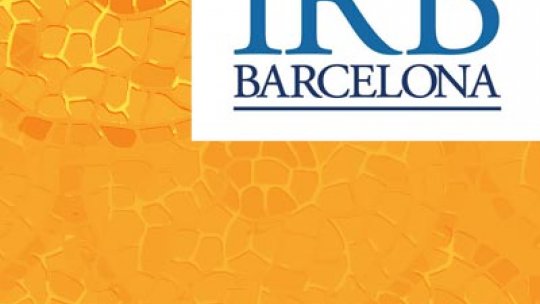Speaker: Álvaro Ucero, PhD Genes, development and disease Group Cancer Cell Biology Programme Centro Nacional de Investigaciones Oncológicas (CNIO)
Presentation
Organizer: IRB Barcelona
Date: Wednesday 14 March, 13:00
Place: Aula Fèlix Serratosa, Parc Científic de Barcelona, Spain
Abstract
Lung fibrosis is a lethal scarring process characterized by progressive matrix accumulation, compromising tissue structure and organ function, and has no effective therapies. In mice, broad expression of Fra-2 (Fra-2 tg) leads to spontaneous multi-organ fibrosis with a prominent lung manifestation. RNA-seq on lungs from Fra-2tg mice before fibrosis develops revealed significantly increased expression of collagens as well as genes controlling innate immunity. Fra-2 protein expression is detected in several cell types in human and mouse fibrotic lungs, including myeloid cells, while barely detectable in healthy tissue.
To unravel the role of Fra-2, we subjected genetically engineered mouse models (GEMMs) with cell-specific Fra-2 loss-of-function, to chemically- induced lung fibrosis by Bleomycin. We found that Fra-2 deletion in myeloid cells prevents lung fibrosis development after Bleomycin. In vitro and in vivo experiments suggest that Fra-2 controls the pro-fibrogenic activity of macrophages, rather than the immune response. These findings are clinically relevant since pharmacological inhibition of Fra-2/AP-1 activity demonstrates therapeutic efficacy against lung fibrosis progression.
Importantly, Type VI collagen expression from macrophages was found associated with Fra-2, as well as fibroblast activation and the extent of lung fibrosis. Furthermore, the correlation of Fra-2 and Type VI collagen was also observed in lungs of IPF patients. Therefore, the interplay of Type VI collagen and Fra-2 in macrophages mediating fibroblast/myofibroblast activation might be an important modulator of lung fibrosis development. Targeting Fra-2/AP-1 in the lung, particularly in macrophages may thus represent a promising therapeutic option for lung fibrosis and potentially other fibrotic diseases.
Molecular Medicine Programme Seminar

